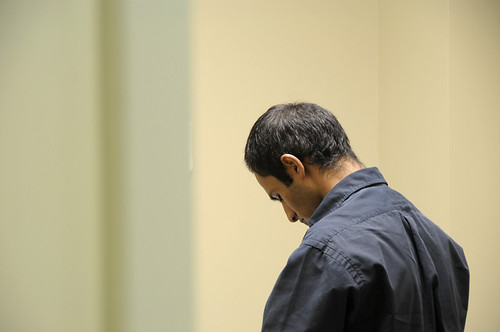Local Muslims celebrate Islam’s holy month through prayer, charity and bonding with family.
For Yusuf Dandridge and his sister, Inayah, the month of Ramadan is more than just a holiday.
“Ramadan is a time we fast to feel how it is for people that don’t have food,” 12-year-old Yusuf said. The North Philadelphia resident and his sister explained this as they shared Iftar – a dinner meal that breaks daily fast during the month – with members of Temple’s Muslim Student Association.
The siblings and their friends – Sahir, 10, Sufyan and Ammara, both 6, Mohammed – have been waking up as early as 3 or 4 a.m. since Aug. 11 to eat with their families before they fast from sunrise to sunset, as is custom for Muslims during the holiest month of the year. Only at Iftar can they break their fast, first with water and a date, and then with the regular meal.

Ramadan, the ninth of 12 lunar months on the Islamic calendar, marks the time when Allah revealed the Quran to Muhammad. During this time, Muslims fast not only from food and water, but also drinking, gossiping, smoking and having intimate relations.
In addition to Sawm – Arabic for fasting – Muslims are encouraged by faith to pray and read the entire Quran. After Iftar, members of the congregation are called to the mosque to pray together. This special series of prayers is called Tarawih.
Temple has a large number of Muslim students, about 600 to 700, Heidar Albandar, the president of the MSA, said. Temple is also one of the only universities in the country to have designated areas for washing feet, an essential component of many Islamic rituals.
These feet-washing stations are located in some of the restrooms on Main Campus, including one in the Student Center. It also offers rooms that are reserved for prayer, the main one being on the third floor of the Student Center.
This Thursday, the MSA, along with other organizations like it all across the country, will host Fast-a-Thon. It is intentionally held on the last day of Ramadan – called Eid ul-Fitr, Arabic for Festival of Breaking the Fast – to raise awareness about the issue of hunger and to educate those who are not familiar with the holiday or Islamic traditions.
Students of all backgrounds are encouraged to participate by fasting from sunrise to sunset on Eid ul-Fitr. They are also invited to a celebratory dinner, at which they will enjoy food prepared by the MSA and learn about Ramadan from guest speakers.
“The event actually caters to non-Muslims,” Albandar said.
All proceeds from Fast-a-Thon will be sent to Islamic Relief, an organization working directly with the victims of the recent flooding that has devastated Pakistan.
Two other cultural traditions that many can look forward to during Ramadan are the desserts – some of which will be at Fast-a-Thon – including baklava, as well as the decorations.
Many who practice the holiday adorn their homes with a bright crescent moon and star lights. In Egypt, Ramadan lanterns are hung over the streets to decorate for the occasion.
In addition to charity, prayer and fasting, perhaps one of the most meaningful aspects of Ramadan is the bond that one shares with the community.
“Ramadan gives us strength of willpower,” Khadija Qurbanzada, a sophomore architecture major, said. “It really unites the family.”
For many, it is a time to get together with old friends and family members. Families invite other families and friends into their homes all the time. They share Iftar daily, and go to mosque afterward.
“Through every deed we do, God is trying to teach us to go back to Him,” Rushdi Razif, a junior architecture science major, said during one of the MSA’s Iftar meals. “He spaces out the prayers because He wants to give you space between, to reflect and think about how you can stay as pure as possible.”
Matt Flocco can be reached at matthew.flocco@temple.edu.



Be the first to comment